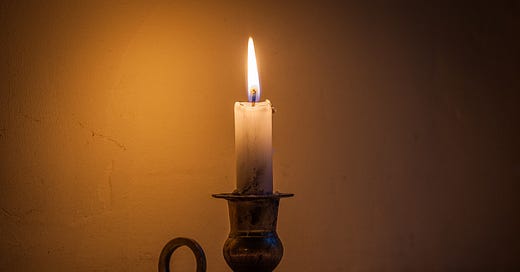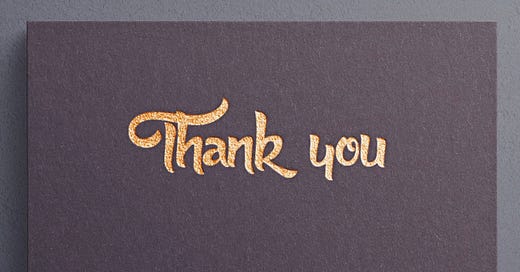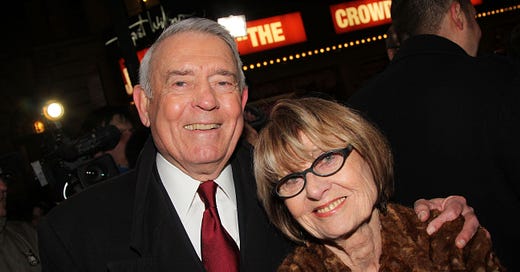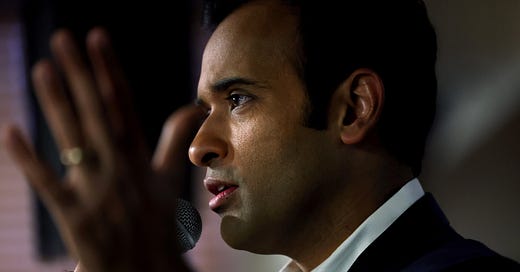
Discover more from Steady
This past week marked Yom Kippur, the holiest day of the Jewish calendar and a time for atonement, repentance, and fasting. I know from my Jewish friends and colleagues how solemn and important this moment is. I honor this tradition. I have long felt that, regardless of one’s faith, finding occasions for self-reflection, where you confront your own failings with honesty and clarity, is a necessary and worthy exercise.
We are living in a moment of particular rancor, when anger, fear, and despair are widespread, and for good reason. We can see selfishness run amok, a selfishness that is proving deadly in a time of a pandemic and increasingly with our climate crisis. We can see cruelty towards others taking hold, fueled by a toxic brew of ignorance and hatred centuries in the making. We are witnessing lies weaponized into an assault on our ideals of a pluralistic democracy. We see women being denied agency over their own bodies. We see historical truths being denied and false narratives flourish.
In such a state it is natural to try to sort ourselves between “us” and “them.” It is understandable that we wish to castigate and ultimately defeat the purveyors of our societal ills. But from my limited understanding of Yom Kippur, what is asked of that day is not to dismiss or deny all that is wrong about the larger world, but to take a pause from looking outward and shift to the hard work of looking inward. With humility, we must understand that all of us are flawed and in need of improvement. And it is in that spirit that I wanted to create a space for our discussion today. With grave dangers afoot, it is too easy to absolve ourselves of our own actions, big and small, that harm others.
Writing in the New York Times in an essay entitled “A Rabbi’s Guide on Making Amends and Letting Those Grudges Go,” Rabbi David Wolpe outlined some of the many practices around Yom Kippur. I share a few here for the purpose of our examination, but I encourage you to read the entire piece.
“If you have caused offense or harm, Yom Kippur does not magically buy you absolution. But the traditions surrounding the day do offer guidance for seeking forgiveness. First, you must apologize to those you’ve hurt, sincerely, as many as three times. The apology should not come weighed down with justification, but rather should acknowledge the other person’s hurt and express sincere regret.
Second, serious, sustained reflection is required to try to change who you are. The Hebrew word for repentance, teshuvah, also means return. To repent is to return to what once was, what became hidden through coarseness or impulse. It is also to return to God and to the community. But slow, careful restoration takes time. The one who is sorry today and expects to stride right back, unblemished, is naïve or conniving.
Third, you must change your ways. The sage Maimonides teaches that one who says to himself, “I’ll sin and then, repent” cannot be forgiven. Sorrow is not a strategy. It is a vulnerability and it is a promise.
And what if you are the one who has been hurt? Jewish tradition urges us to consider why it is so hard to forgive. There is a savage self-righteousness to public shaming. If I forgive you, truly forgive you, then I must restore moral parity; I am no better than you. Accepting that steals the satisfactions of resentment, but it is essential: Jewish law insists that once someone has been forgiven, you must never remind the person of that fact. To do so is to re-establish a hierarchy that true forgiveness disavows.”
There is so much wisdom and cause for reflection in Rabbi Wolpe’s elucidation of the traditions of atonement at Yom Kippur. And one of the most powerful is that we all can try to open ourselves up to ask others for forgiveness and to also bestow forgiveness on those who have hurt us, if they sincerely seek it. To be sure, not all actions are forgivable and many who harm us will continue to do so without remorse. But what strikes me is that this is less about any one particular act than it is about forging a system for reconciliation and repentance. It is a hopeful belief that we all have the power to be better if we have the courage to consider our actions without the smokescreens of justification we build for ourselves.
We live in a time where the divides between us are stark and seem to be growing both wider and more inescapable. We are divided by politics, race, geography, occupations, and sexual identity, to name but a few. Often these divisions overlap. It has become easier and easier to predict how someone will think about a whole host of issues based on what we can tease out about their demographics. In these divisions, acts of reconciliation are more difficult. We operate in different spheres, and our isolation has only grown in the pandemic and the escalating attacks on our civic ways of life. That is why it is so essential that we do our part to lessen this separation, to understand our own actions that can create not only harm but the potential for help.
In recent years, I have been asked many times, often through heartfelt and sometimes tearful entreaties, what any one of us can do in the face of the powerful destructive forces arrayed against progress and hope. I recognize that the size of the problems we face requires broad and sustained global action. But a collective response is, by definition, powered by a collection of individuals. And what I have said to those who ask is that they, and I, should start by trying to do one small thing that makes our human and natural worlds better. Reach out to even one person who you know who may be lonely. Pick up some trash in a park as you walk through. Choose to end a hurtful line of discourse. From small actions, can come larger ones. Momentum can build. Join a local volunteer effort. See something that you feel can be improved and then start a small movement to fix it. Recognize that we all can do more. We all can choose at one of the countless inflection points of our lives to opt for positive action. Reflecting back on Yom Kippur, Jews gather on that day as a community but what they are wrestling with, what they are vowing, what they are beginning to act upon is a personal journey. It is a chorus of hope, but a chorus is a collection of individual voices.
Even while some people work hard on self-improvement there will always be others who flaunt their bad behavior. Sadly, many who should face consequences for their actions never will. Injustice is rampant. It always will be. But to be consumed by that at the detriment of one’s own obligations of atonement and outreach is to succumb to a cynicism that isn’t helpful. We can be angry at what we see. We can vow to work to make sure that those who are harming others at the greatest scale shall not have power. But at the same time we must do what we can to lessen our own spite and inflictions of injury.
Years ago I came across a story from the Jewish tradition that I want to share once more. It comes from the famed 19th Century Rabbi Israel Salanter who told of how he came across an old shoemaker late one night still hunched over in work even though it was late and the candle providing light was nearly burnt out. He asked the old man why he was doing such a thing, and the shoemaker replied, “As long as the candle is burning, it is still possible to make repairs." Rabbi Salanter was deeply moved by the great wisdom of this statement, and so am I.
In life, as long as each of us has it, it is possible to mend - even when our candles have mostly burnt themselves out. This does not only hold true for individuals, but for societies, and movements, and our larger world. May it always be thus. And may more of us find the courage and conviction to fix what we can while we still have the light to do so.












You took me to church this morning Dan Rather. I slowed down and read your piece and thought about the forgiveness and atonement issues in my own life. I have begun to reflect and I think that I will be reflecting all week at least. These last five years have destroyed many of my closest relationships--both family and friends. I have lost close touch with those in my orbit who have supported Donald Trump and continue to support him. I found that I had little in common with them any more because their adoption of his and the Republican Party's ideology was an affront and perhaps a threat to my racially diverse family. Over the past year or so, I have been working on blessing these now acquaintances and letting them go from my life. It has been painful but necessary given the toxic attitudes they expressed toward my core values. I am beginning to find peace with myself and the changes that I am continuously making in my life, attitudes and behavior. Your words this morning are a poignant reminder of how much further I have to go in my own Yom Kippur journey. Thank you.
Thank you for these words. I often wonder if the "little" things I do for my family, community, and planet are worthy of continuing as I feel like sometimes "it's only me" and how much difference can I make? Ahh, but it's not only me. Thank you for that reminder. I will continue to do what I can and to look inward to review who I am, where I am, and what I need to do and where I need to go.